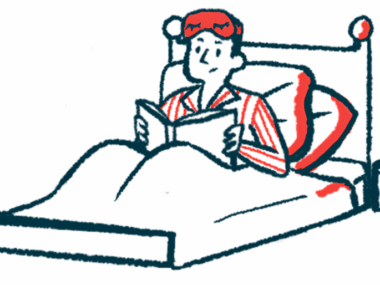84% of people with Parkinson’s report sleep problems in study
Sleep problems especially common for men, those with early-onset disease
Written by |

A large proportion of people with Parkinson’s disease struggle with sleep problems, including issues with falling asleep or maintaining uninterrupted sleep, according to a large study out of Maynooth University in Ireland.
Certain factors, such as being male or receiving a Parkinson’s diagnosis at a younger age, may be associated with a higher likelihood of sleep-related problems.
Moreover, poor sleep can make patients feel mentally unwell, leading to symptoms of depression and difficulty coping with daily challenges. This takes a toll on daily life, making it more difficult for patients to live independently and take care of themselves.
Sleep problems ‘significant burden to quality of life’
“Sleep problems are a significant burden to quality of life in a number of chronic health conditions. Our study shows how important sleep is to address in Parkinson’s disease, one of the most common and debilitating brain diseases,” Andrew Coogan, PhD, who led the study, said in a university press release.
Coogan and two other researchers drew on data from nearly 54,000 people, including 38,588 with Parkinson’s, collected by the Michael J. Fox Foundation for Parkinson’s Research as part of its Fox Insight online clinical study of self-reported data from people with or without the disease.
“The research database from the Michael J. Fox Foundation that we drew on in our study is a great example of the wonderful opportunities presented by large international studies for research that will help advance key questions in human health and benefit patients,” Coogan said.
The study, “Prevalence and associations of self-reported sleep problems in a large sample of patients with Parkinson’s disease,” was published in the Journal of Sleep Research.
Parkinson’s often causes sleep problems such as excessive daytime sleepiness, difficulty falling or staying asleep, breathing problems or unusual behaviors during sleep, disrupted sleep-wake cycles, and restless leg syndrome, which is a strong urge to move the legs when at rest.
To determine the prevalence of sleep issues among those with Parkinson’s, researchers compared data from a group of 38,588 Parkinson’s patients to 15,832 healthy individuals. The average age of the participants was 66.95 years, with women making up slightly more than half (53.2%) of the study population. Parkinson’s patients received their diagnosis at an average age of 60.46 years.
The proportion of patients who experienced difficulty falling or staying asleep was nearly double that of healthy controls (84.2% vs. 43.3%). Difficulty staying awake during the day, having vivid dreams or acting them out, and using sleep medication were also more common among patients.
“Experiences of insomnia, restless leg syndrome, vivid dreams, acting out dreams, and the use of sleep medication are over-represented in patients with [Parkinson’s] compared with matched healthy controls,” the researchers wrote. Insomnia refers to difficulty falling asleep or staying asleep for as long as needed.
Insomnia linked to more severe depression
Being diagnosed with insomnia by a doctor was linked to higher scores on the Geriatric Depression Scale, indicating more severe depression. It was also linked to lower scores on the Penn Parkinson’s Daily Activities Questionnaire, indicating less independent daily functioning, and higher scores on the Parkinson’s Disease Questionnaire, indicating poorer quality of life.
Men were 32% more likely than women to experience insomnia and 23% more likely to experience difficulty getting to sleep at night. However, they were less likely to report difficulty with staying awake during the day or acting out dreams.
Patients with early-onset Parkinson’s, diagnosed at 50 or younger, were more likely to experience insomnia, daytime sleepiness, difficulty sleeping, and vivid dreams compared with those diagnosed after 50. On average, patients with sleep problems were diagnosed with Parkinson’s at a younger age (60.3 vs. 63 years).
Off periods, when Parkinson’s treatment wears off and motor symptoms worsen, were reported by more than half (56.9%) of patients. Those with sleep problems were more likely to experience off periods (58.8%) compared to those without (38.7%). However, having a diagnosis of insomnia alone was not linked to more frequent or longer off periods.
While some patients (6.7%) reported sleep problems as their most bothersome symptom, they had less severe depression and better cognitive function than patients for whom balance problems were most troublesome, suggesting the relative burden of sleep problems when motor symptoms are more severe.
“Sleep problems are common,” the researchers wrote. “As such, sleep represents an important and potentially modifiable feature to further explore in the management of [Parkinson’s] to improve outcomes and quality of life.”




